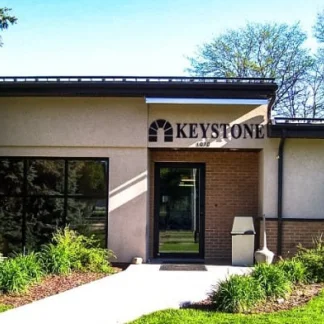Keystone Treatment Center
Canton, South Dakota, 1010 East 2nd street, 57013
Available Programs
- Adolescence program
- Adult program
- Program for men
- Program for women
- Young adult program
Insurance and Financial
- Access to Recovery (ATR) Voucher
- 638 contracts
- Medicaid
- Private insurance
- Self-pay options
- Financial aid
- Health Net
- Humana
- UnitedHealth Group
- Employee Assistance Program
About this Facility
Keystone Treatment Center, located in Canton, South Dakota, is a substance use disorder treatment center that offers a wide continuum of care to men and women struggling with addiction. Their services are designed to meet each person where he or she is at.
Keystone Treatment Center offers detox, residential, intensive outpatient, outpatient, aftercare, and specialty programming for Native Americans and the military.
The detox program at Keystone is a medically monitored treatment program that provides a safe and effective treatment process that generally lasts 3 – 7 days in length. Medications can be used to help mitigate the often uncomfortable experience of withdrawal, helping individuals avoid common pitfalls associated with detoxing at home.
The residential program at Keystone is age-specific, with options for adults and adolescents. The purpose is to provide highly structured care to those who need continual monitoring and support during the initial stages of treatment. The program emphasizes learning the skills to maintain long-term recovery.
The intensive outpatient program is for those who need more treatment than what a traditional outpatient program can provide, while still focusing heavily on regular interaction and meetings. This program meets either in the morning or evening, depending on which track a person signs up for.
The outpatient program at Keystone Center is for men and women who no longer need a high degree of support. The emphasis is on relapse prevention and continued sobriety.
Contact us for more information: (605) 519-2077

Contact Keystone Treatment Center
Connect with Keystone Treatment Center by calling their admissions team directly.
(605) 519-2077 Website Get Directions